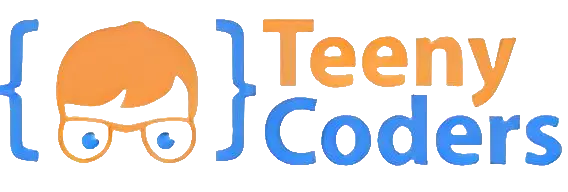Introduction to C Programming basics
C programming basics, often considered the backbone of modern programming languages, serves as an excellent starting point for aspiring programmers. This versatile language has stood the test of time, proving its significance across various domains.
Introduction to C Programming basics
C programming basics, often considered the backbone of modern programming languages, serves as an excellent starting point for aspiring programmers. This versatile language has stood the test of time, proving its significance across various domains.
1.1 What is C Programming?
C is a procedural programming language developed in the early 1970s by Dennis Ritchie at Bell Labs. It has since become one of the most widely used programming languages, influencing the development of many other languages.
1.2 Importance of Learning C Programming
Learning C provides a strong foundation for understanding programming concepts. Its simplicity and efficiency make it essential for both beginners and seasoned developers.
History and Evolution of C Programming
2.1 Origins of C Programming
C’s roots trace back to the Multics project, where Ritchie and Ken Thompson developed it to improve the B programming language. C eventually became the foundation for the Unix operating system.
2.2 Influences on Other Programming Languages
The syntax and design principles of C have influenced various programming languages, including C++, C#, and Objective-C.
C Programming Basics Structure
3.1 Syntax and Semantics
C programming basics follow a structured syntax and semantics, making it crucial for programmers to understand the correct way to write and organize code.
3.2 Variables and Data Types
In C, variables store data, and understanding data types is crucial for effective programming. Common data types include int, float, and char.
3.3 Operators in C
Operators in C allow manipulation of data, including arithmetic, relational, and logical operations.
Control Flow in C
4.1 Decision-Making Statements
C provides if, else if, and else statements for decision-making, allowing the execution of specific code blocks based on conditions.
4.2 Looping Constructs
Looping constructs like for, while, and do-while facilitate repetitive tasks in C programs.
Functions in C
5.1 Defining and Calling Functions
Functions in C promote code modularity, allowing developers to break down complex tasks into manageable pieces.
5.1 Defining and Calling Functions
Functions in C promote code modularity, allowing developers to break down complex tasks into manageable pieces.
5.2 Recursion in C
Recursion, a powerful concept in C, involves a function calling itself, providing elegant solutions to certain problems.
Arrays and Pointers
6.1 Understanding Arrays
Arrays in C store multiple elements of the same data type, providing efficient data organization.
6.2 Utilizing Pointers in C
Pointers allow direct manipulation of memory addresses, enhancing the control over data and resource management.
Structures and Unions in C
7.1 Creating and Using Structures
Structures enable the creation of user-defined data types, bundling different data elements into a single unit.
7.2 Differences Between Structures and Unions
Unions, like structures, group data, but with the key difference that they share the same memory location for all members.
File Handling in C
8.1 Input and Output Operations
C supports file handling, enabling the reading and writing of data to external files.
8.2 File Handling Functions
File handling functions like fopen, fclose, fread, and fwrite facilitate efficient file operations.
Dynamic Memory Allocation
9.1 Allocating and Freeing Memory
Dynamic memory allocation in C allows the program to request and release memory during runtime, enhancing flexibility.
9.2 Avoiding Memory Leaks
Understanding memory management is crucial to prevent memory leaks and ensure efficient resource usage.
Error Handling in C
10.1 Dealing with Runtime Errors
C programmers need to implement effective error-handling mechanisms to identify and resolve runtime errors.
10.2 Debugging Techniques
Debugging tools and techniques aid in identifying and fixing bugs in C programs.
C Programming Best Practices
11.1 Code Readability and Maintainability
Maintaining clean and readable code is essential for collaborative projects and long-term development
11.2 Efficient Coding Techniques
Adopting efficient coding practices improves performance and reduces the chances of introducing errors.
Common Challenges for C Programmers
12.1 Understanding Pointers
Pointers can be challenging for beginners, requiring careful handling to prevent memory-related issues.
12.2 Memory Management Pitfalls
C programmers must navigate potential pitfalls in memory management to avoid unpredictable behavior.
Resources for Learning C Programming
13.1 Online Courses and Tutorials
Numerous online platforms offer comprehensive courses and tutorials for learning C programming, catering to various skill levels.
13.2 Books for C Programming Enthusiasts
Books like “The C Programming Language” by Brian Kernighan and Dennis Ritchie remain timeless resources for those diving into C programming.
Applications of C Programming
14.1 C in System Programming
C is widely used in system programming, contributing to the development of operating systems and utilities.
14.2 Embedded Systems and C
The efficiency and low-level control offered by C make it a preferred choice for programming embedded systems.
Conclusion
Understanding the C programming basics lays a solid foundation for tackling more advanced programming languages. As you embark on your C programming journey, continuous learning and practical application will enhance your programming skills.
Frequently Asked Questions
Yes, C programming remains relevant, especially in system programming, embedded systems, and areas where low-level control is essential.
Beginners often struggle with understanding pointers and may encounter challenges in memory management.
“The C Programming Language” by Brian Kernighan and Dennis Ritchie is highly recommended for beginners.
Practice regularly, participate in coding challenges, and seek feedback from experienced programmers to enhance your skills.
Platforms like Coursera, Teeny Coders, and edX offer online courses, covering various aspects of C programming.


